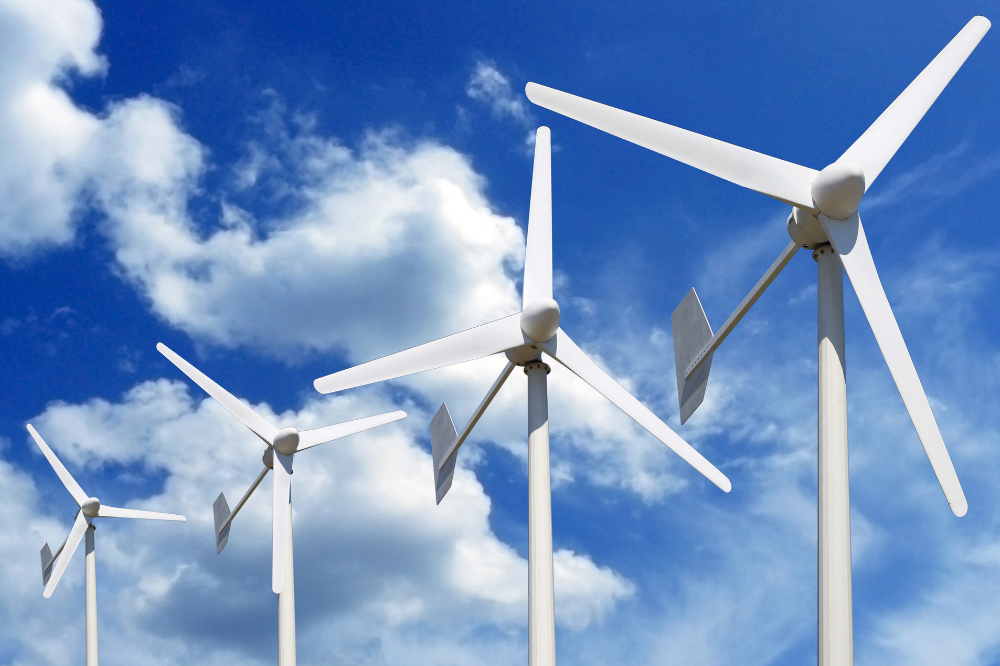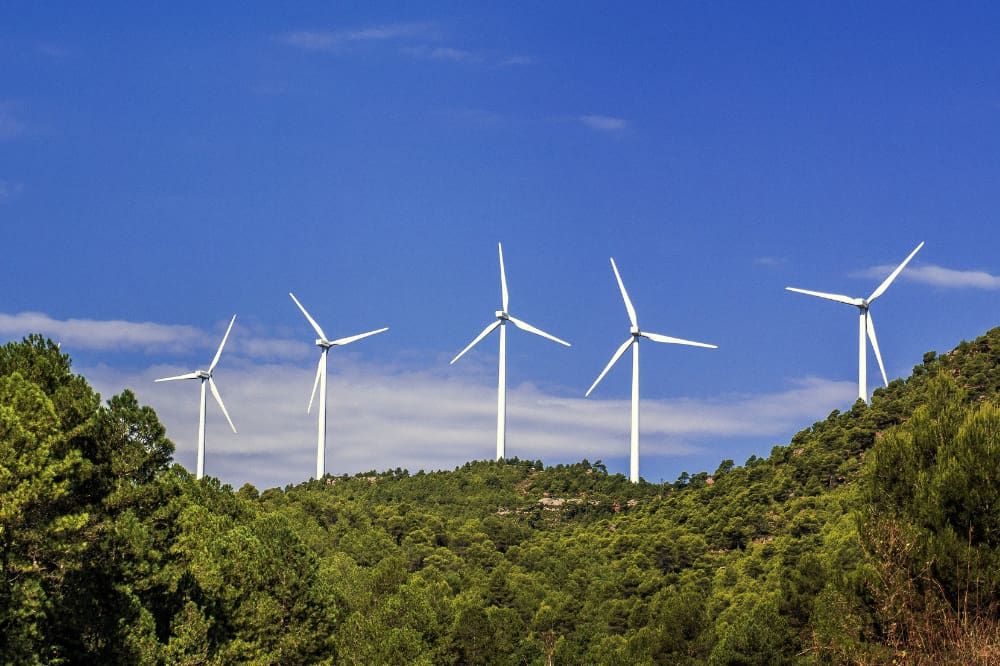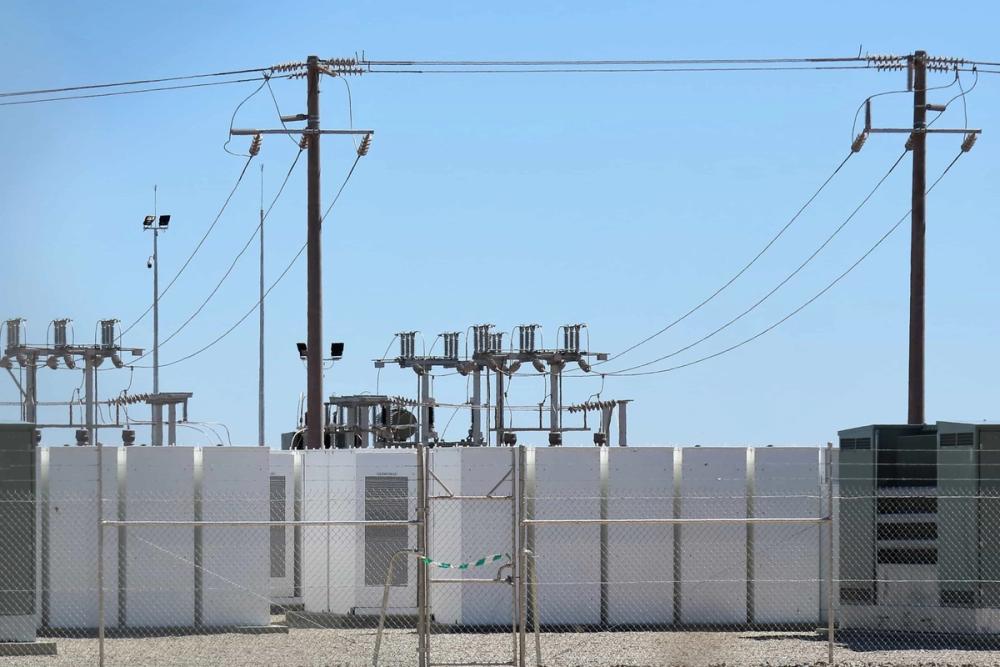Top 10 Reasons to Invest in Wind Energy

In the global pursuit of cleaner and more sustainable energy sources, wind energy has emerged as a frontrunner. With towering wind turbines dotting landscapes around the world, harnessing the power of the wind has become a symbol of the transition to a greener future.
Investing in wind energy is incredibly beneficial for larger businesses across the globe who are looking to improve their impact on the environment by utilising sustainable energy resources.
In this blog post, we will explore the top 10 reasons why investing in wind energy is not only a sound business decision but also a crucial step towards a more sustainable and resilient energy landscape.
1 - Renewable and Abundant Resources
Wind energy has witnessed substantial growth as a key player in the global transition towards cleaner and more sustainable energy systems. The technology behind harnessing wind power involves wind turbines, which convert the kinetic energy of moving air into electrical energy.
These turbines are strategically placed in areas with consistent and strong wind patterns, such as open plains, coastlines, or elevated landscapes.
One of the notable advantages of wind energy lies in its environmental friendliness. Unlike traditional fossil fuels, wind power generation produces minimal greenhouse gas emissions and pollutants, contributing significantly to efforts to mitigate climate change and reduce air pollution.
Additionally, the land footprint of a wind farm is relatively small, allowing for coexistence with agriculture or other land uses.
2 - Reduced Greenhouse Gas Emissions
Unlike coal, oil, or natural gas power plants, wind turbines generate electricity without emitting harmful pollutants such as sulphur dioxide, nitrogen oxides, and particulate matter.
Moreover, wind power produces electricity without releasing significant amounts of carbon dioxide (CO2) — a major contributor to the greenhouse effect and climate change.
By choosing wind energy, we actively reduce our reliance on fossil fuels, mitigating the adverse environmental impacts associated with their extraction, transportation, and combustion.
Investing in wind energy is, therefore, a strategic move to foster a cleaner and healthier environment. The reduction in greenhouse gas emissions helps mitigate the warming of the planet, decrease the severity of extreme weather events, and slow down the adverse impacts on ecosystems and biodiversity.
Moreover, the associated health benefits are profound, as decreased air pollution contributes to improved respiratory and cardiovascular health among human populations.
3 - Energy Independence and Security
Wind energy enhances energy independence by diversifying the sources of power generation. Countries that invest in wind energy reduce their reliance on imported fossil fuels, enhancing energy security.
The decentralised nature of a wind farm also contributes to a more resilient energy infrastructure, less susceptible to geopolitical tensions and supply chain disruptions.
Governments, businesses, and individuals worldwide are increasingly recognising the critical role of wind energy in achieving sustainability goals and energy independence from the main grid.
Transitioning to renewable energy sources, like wind power, is seen as a pivotal step towards achieving carbon neutrality and creating a more resilient and climate-responsible energy infrastructure.
4 - Job Creation and Economic Growth
Investing in wind energy fosters job creation and economic growth. The wind energy sector requires a diverse range of skilled professionals, from engineers and technicians to project managers and researchers.
By supporting this industry, governments and businesses stimulate economic activity and contribute to the development of a robust, sustainable job market.
5 - Low Operating Costs and Stable Prices
Once a wind turbine is installed, the operating costs are relatively low compared to traditional power generation methods. Wind energy companies benefit from stable, long-term pricing, reducing exposure to the volatility often associated with fossil fuel markets.
This stability makes wind energy, alongside solar power, an attractive investment with predictable returns over the lifespan of the infrastructure.
6 - Technological Advancements and Innovation
The wind energy industry is characterised by continuous technological advancements and innovation. As researchers and engineers strive to improve turbine efficiency, enhance green energy storage capabilities, and optimise overall system performance, investors in wind energy stand to benefit from ongoing developments that drive down costs and increase energy output.
7 - Scalability and Versatility
Wind energy projects come in various sizes, from small community wind farms to large-scale offshore installations.
This scalability allows investors to tailor their involvement based on budget, available space, and energy demand. Wind energy is adaptable to diverse geographical conditions, making it a versatile option for countries with varying landscapes.
The versatility of wind energy is another compelling feature. Wind farms can be deployed at various scales, from small community-based projects to large utility-scale installations.
This flexibility enables wind energy to meet the diverse energy needs of different regions and communities, fostering energy independence and security.
8 - Enhanced Grid Resilience
The distributed nature of wind farms enhances the resilience of the electrical grid. Unlike centralised power plants, which are vulnerable to single points of failure, wind farms are spread across different locations.
This geographical diversity reduces the impact of localised disruptions, contributing to a more resilient and reliable energy infrastructure.
9 - Community and Stakeholder Engagement
Wind energy projects often involve collaboration with local communities and stakeholders. By investing in wind energy, businesses can build positive relationships with the communities hosting the wind farms.
This engagement can lead to increased public support, streamlined project approvals, and a shared commitment to sustainable energy development.
10 - Long-Term Sustainability and Environmental Conservation
Investing in wind energy aligns with long-term sustainability goals and environmental conservation. Wind power is a key player in the transition to a low-carbon future, contributing to biodiversity conservation, air and water quality improvement, and the overall preservation of natural ecosystems.
By supporting wind energy, investors play a crucial role in fostering a sustainable legacy for future generations.
Renewable Energy Projects at Balance Power
Investing in wind energy is not just a financial decision; it is a commitment to a greener planet, reduced carbon emissions, and the creation of a resilient and secure energy infrastructure.
As we stand at the forefront of a renewable energy revolution, embracing the potential of wind energy is an investment in the well-being of our planet and the prosperity of generations to come. Contact us today to discuss how our renewable energy projects can benefit your business.



